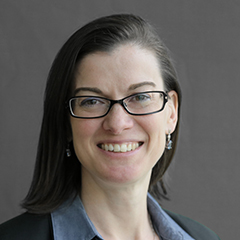U.S. Department of Education, Institute of Education Sciences
Coaching is a promising strategy for supporting teachers’ instruction and improving student achievement. However, school districts lack clear guidance on the features of coaching that contribute to its effectiveness—such as how coaches should provide feedback and how much coaching teachers should receive.
This study provides evidence on the effectiveness of providing individualized coaching to teachers based on videos of their instruction. Professional coaches—rather than district or school staff—gave teachers feedback after observing these videos. Coaches focused on general teaching practices and followed a structured cycle of coaching activities. The study examined how much coaching is needed by testing two versions of coaching: one that provided five cycles of coaching and one that provided eight cycles. To measure the effect of coaching on teachers’ practices and student achievement, researchers randomly assigned 107 elementary schools to one of three groups: one that received five cycles of coaching, one that received eight cycles of coaching, and one that continued its usual strategies for supporting teachers. To help translate the findings into practice, the study also documented how the coaching was implemented.
Mathematica is leading this study for the U.S. Department of Education’s Institute of Education Sciences. Our partners on the evaluation are Teachstone, WestEd, Decision Information Resources, Clowder Consulting, Pemberton Research, IRIS Connect, TeachForward, and Suzanne Wilson from the University of Connecticut.
Evidence & Insights From This Project

New Report Finds Student Test Scores Improved After Teachers Received Individualized, Video-Based Coaching
A national study of 107 schools found that five highly structured “cycles” of video-based coaching for teachers led to improved student achievement in English language arts.
Learn MoreRelated Staff
Efficiency Meets Impact.
That's Progress Together.
To solve their most pressing challenges, organizations turn to Mathematica for deeply integrated expertise. We bring together subject matter and policy experts, data scientists, methodologists, and technologists who work across topics and sectors to help our partners design, improve, and scale evidence-based solutions.
Work With Us


